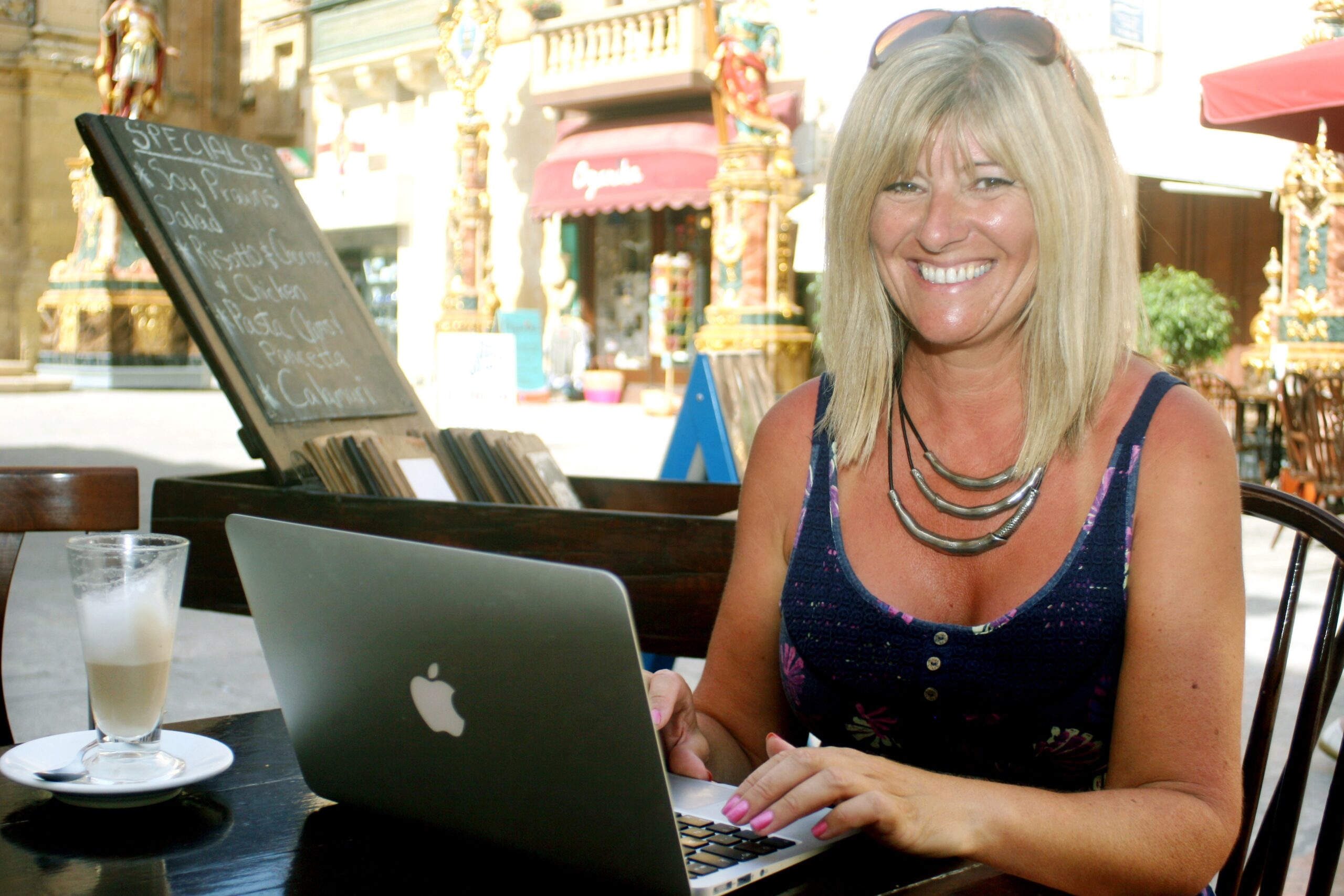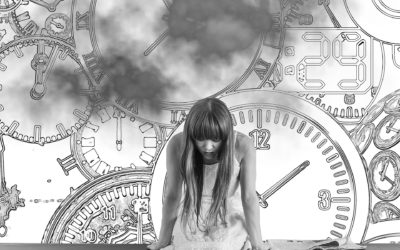
Distorted Thinking Series Part 1 : Cognitive Biases
Author – Emma Triplett
This week kicks off a new series of posts centred around the subject of distorted thinking. Anxiety and depression disorders can develop from various forms of distorted thinking and once these conditions have taken root, they encourage yet more abnormal thoughts. Relationship problems and anger issues also get caught up in their fair share of altered or misaligned perceptions leading to yet more stress and emotional discomfort. So over the coming weeks we’re going to take a closer look at the different forms of distorted thinking we commonly encounter and what we can do about it.
Psychologists have a term – Cognitive Bias which translates as prejudice thinking (cognitive meaning ‘thinking’ and bias meaning ‘prejudice’) and describes a very human trait that we all have. Whether you know it or not and, indeed, whether you like it or not, to be human is to have prejudiced thoughts. The actual definition of cognitive bias is “a systematic pattern of deviation from norm or rationality in judgment” so, if all humans are subject to cognitive bias, it would suggest that we are all irrational would it not?
Well, yes and no! We all like to believe that we think rationally and base judgements on sound information and facts, however, in reality this is often not the case.
Take reading your horoscope as an example, I’m sure everyone has done this (an example of a bias called the ‘false consensus effect’) – have you read your horoscope and, if it describes personality attributes that you perceive as positive or it predicts a wonderful event that is going to happen for you in the next two weeks, you believe it must be true, however, if it foretells doom and gloom and negative traits, it’s a load of old rubbish? (or perhaps the other way around if you have depression – see below). You know rationally that it is not based on fact but you irrationally decide to believe the information presented to you based on it being nice.
To give you a taste of the type of subjects we’re going to be discussing over the coming week and to put this irrational thinking in a little bit of context, consider these:-
Confirmation Bias – “the tendency to search for, interpret, favour, and recall information in a way that confirms one’s preexisting beliefs”
Even scientists need procedures in place to safeguard against their own confirmation bias. Our ‘go to’ database (our brain, not google), holds a lifetime of learning, experience and memories, it will retain information you don’t even remember consuming, but the moment you need to back up your own belief, you mind will search for and find whatever it is you need to justify. It can be anything from ‘eating butter is healthy’ to ‘I’ll never get out of my financial situation’.
Expanding on that latter example, behavioural confirmation is another form of cognitive bias, also knows as a self fulfilling prophecy. This describes how someone’s actions align with a pre-existing belief, effectively causing the belief to come true, for example, if someone believes they will never get that promotion they want, their actions will manifest in such a way that they don’t put in the effort needed or fail to project the attitude or body language of someone deserving of the promotion and therefore, they were correct, they don’t get the promotion.
Common in people with depression is Pessimism bias which is the tendency for some people to overestimate the likelihood of negative things happening to them and there there is Hostile attribution bias which people with both anxiety and depression tend to adopt and is the tendency to interpret others’ behaviours as having hostile intent, even when the behaviour is ambiguous or benign.
But why is this important?
If life has become like ‘swimming through treacle’ or you struggle to maintain relationships, you find yourself in conflicts frequently, you suffer from anxiety or depression disorders or things just don’t seem to go your way, awareness is the key and self development is the treasure you unlock.
Being able to pull yourself back from a cognitive bias and realign with fact and rational reasoning may just unlock a future quite difference from the reality you’re experiencing right now.
If you have an inspiring story or something to share that you think will help others wrestling with anxiety or depression, I would love to hear from you. If you have found in particular strategy helpful, chances are that someone else will also benefit, spread the word, share the love and help the fight back against the epidemic of anxiety and depression spreading across the western world.
Wishing you health, wealth, happiness and success


More Articles to help anxiety and depression
Arrange a Free Initial Consultation in Cirencester, Exeter, Plymouth, Swindon or by Skype
Shop for online courses, eBooks and Self Hypnosis Tracks to help anxiety and depression
Where does anxiety come from
In the last article ‘Will anxiety ever go away?’ I described the typical characteristic thought patterns the primitive part of your brain displays when anxiety arises and why it can feel like a life sentence. In this article, for those of you who like to understand the science and what is happening to you psychologically and biologically, I’ve gone in depth with the science of the stress response as, for many, it helps knowing it is a normal physiological response that has an on/off switch. So, here we go, sit tight for the science…
Will Anxiety Ever Go Away?
For those suffering from anxiety (or depression) it can feel like a life sentence, but the ironic truth is that the characteristic thought patterns associated with these conditions are what manifest those no hope feelings and despair. Anxiety can and will go away when you develop the skills and strategies to interrupt the negative thought pattern loop. This video is the first in a three part series about how to help anxiety.
How to help anxiety & depression
One of the fundamental concepts involved in helping anxiety and depression is understanding our human blue print of how we were designed to live. Modern life has developed so rapidly in the last thirty years that our brain can’t keep up, but we can learn how to take our blueprint and emulate how to live in a mentally healthy way. Today’s video explains these fundamental concepts and what you can do about it.
SAD – The Secret To Beating The Winter Blues
The Secret To Beating The Winter Blues Author - Emma Triplett What is SAD It's that time of year again, August is over, schools are going back any day now, we're digging out winter woollies and, for some the black cloud of SAD is gathering. SAD or Seasonal Affective...
Causes of irrational behaviour
What causes of irrational behaviour? Author - Emma Triplett We're all guilty of acting irrationally sometimes however level headed we think we are, and sometimes despite knowing it's irrational we just can't help ourselves, so why do we do it? We have three...
How to Help OCD
OCD afflicts many people in many different forms and to a greater or lesser extent, but when starts to take over and affects those around the person afflicted it’s perhaps time to do something about it. Obsessive Compulsive Disorder can be physical habits or obsessive thought patterns, with the latter being more common but probably less observed and just as intrusive in one’s life. You can cure OCD, but not by focusing on the issue, a desensitisation approach is outdated, traumatic, not necessary and doesn’t work for thought OCDs, allowing the symptoms to fade away is a much less painful solution and easier to do than you think.
Disclaimer | Privacy Policy | Terms and Conditions
Copyright © OLD TOWN HYPNOTHERAPY 2016 All Rights Reserved








I liked the one about cognitive bias. When escaping a covert narcissist the worst part of all was the cognitive dissonance. Distinguishing between fantasy and reality is very hard to accept and maintain but eventually it will dissipate you just have to train your brain.
Thank you, Katie. ♥️